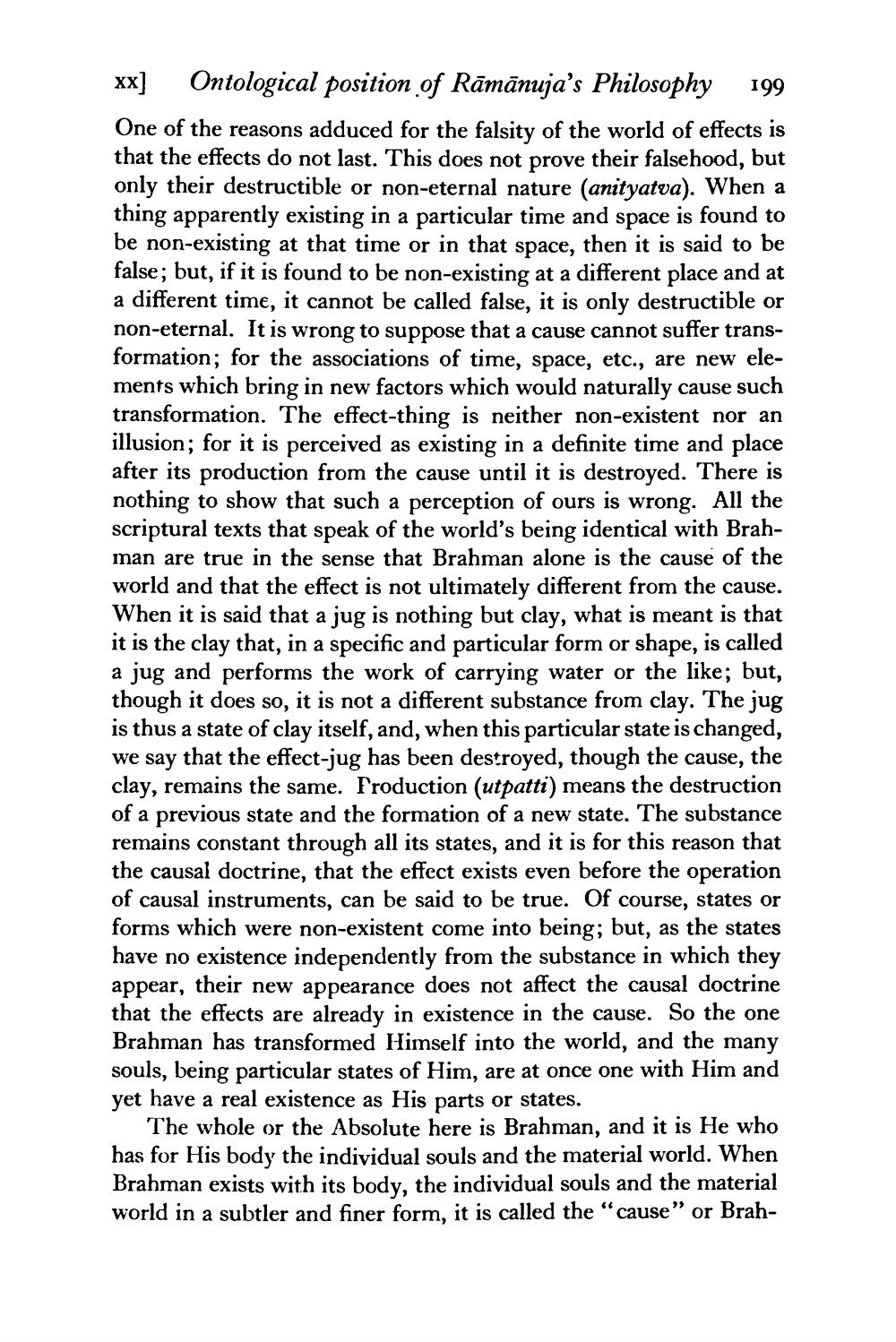________________
xx] Ontological position of Rāmānuja's Philosophy 199 One of the reasons adduced for the falsity of the world of effects is that the effects do not last. This does not prove their falsehood, but only their destructible or non-eternal nature (anityatva). When a thing apparently existing in a particular time and space is found to be non-existing at that time or in that space, then it is said to be false; but, if it is found to be non-existing at a different place and at a different time, it cannot be called false, it is only destructible or non-eternal. It is wrong to suppose that a cause cannot suffer transformation; for the associations of time, space, etc., are new elements which bring in new factors which would naturally cause such transformation. The effect-thing is neither non-existent nor an illusion; for it is perceived as existing in a definite time and place after its production from the cause until it is destroyed. There is nothing to show that such a perception of ours is wrong. All the scriptural texts that speak of the world's being identical with Brahman are true in the sense that Brahman alone is the cause of the world and that the effect is not ultimately different from the cause. When it is said that a jug is nothing but clay, what is meant is that it is the clay that, in a specific and particular form or shape, is called a jug and performs the work of carrying water or the like; but, though it does so, it is not a different substance from clay. The jug is thus a state of clay itself, and, when this particular state is changed, we say that the effect-jug has been destroyed, though the cause, the clay, remains the same. Froduction (utpatti) means the destruction of a previous state and the formation of a new state. The substance remains constant through all its states, and it is for this reason that the causal doctrine, that the effect exists even before the operation of causal instruments, can be said to be true. Of course, states or forms which were non-existent come into being; but, as the states have no existence independently from the substance in which they appear, their new appearance does not affect the causal doctrine that the effects are already in existence in the cause. So the one Brahman has transformed Himself into the world, and the many souls, being particular states of Him, are at once one with Him and yet have a real existence as His parts or states.
The whole or the Absolute here is Brahman, and it is He who has for His body the individual souls and the material world. When Brahman exists with its body, the individual souls and the material world in a subtler and finer form, it is called the “cause" or Brah




